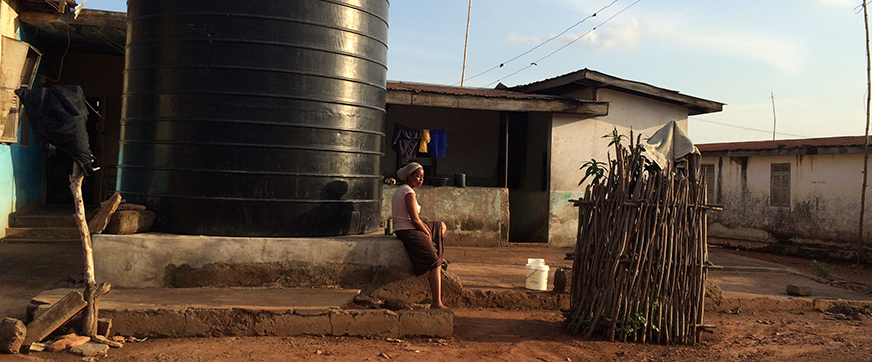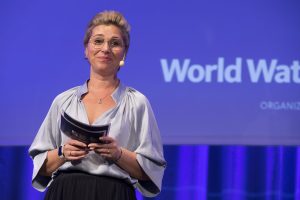SIWI explores complexities of groundwater governance in peri-urban Accra, Ghana
Low accountability and complex governance landscape complicate understanding of reliance on groundwater in peri-urban Accra, Ghana, finds article by SIWI’s Dr. Jenny Grönwall.
Poor urban dwellers tend to be disadvantaged in terms of public service delivery, often relying instead on groundwater through self-supply, but their specific needs and opportunities—and own level of responsibility—are seldom on the agenda. The Greater Accra Region of Ghana and the country as a whole serve to illustrate many interconnected aspects of urbanization, inadequate service provision, peri-urban dwellers’ conditions, private actors’ involvement and user preferences for packaged water.
Based on interviews and a household survey covering 300 respondents, this case study aims to provide insights into the water-related practices and preferences of residents in the peri-urban, largely unplanned township of Dodowa on the Accra Plains in Ghana and to discuss implications of low accountability and a complex governance landscape on the understanding of reliance on groundwater.
Self-sufficient from wells and boreholes until a distribution network expansion, Dodowa residents today take a “combinator approach” to access water from different sources. The findings suggest that piped water supplies just over half the population, while the District Assembly and individuals add ever-more groundwater abstraction points. Sachet water completes the picture of a low-income area that is comparatively well off in terms of water access. However, with parallel bodies tasked with water provisioning and governance, the reliance on wells and boreholes among poor (peri-) urban users has for long been lost in aggregate statistics, making those accountable unresponsive to strategic planning requirements for groundwater as a resource, and to those using it.
Dr. Jenny Grönwall, Programme Manager, SIWI, forms part of the T-GroUP consortium led by UNESCO-IHE and funded by the research programme Unlocking the potential of groundwater for the poor in Sub-Saharan Africa (UPGro). The project focuses on parts of Kampala (Uganda), Arusha (Tanzania), and Accra (Ghana) as examples of growing mixed urban areas in Sub-Saharan Africa, including poor people in slums, who depend on groundwater.
Self-supply and accountability: to govern or not to govern groundwater for the (peri-) urban poor in Accra, Ghana. Available with Open Access from Environmental Earth Sciences, 75(16), 1-10.








